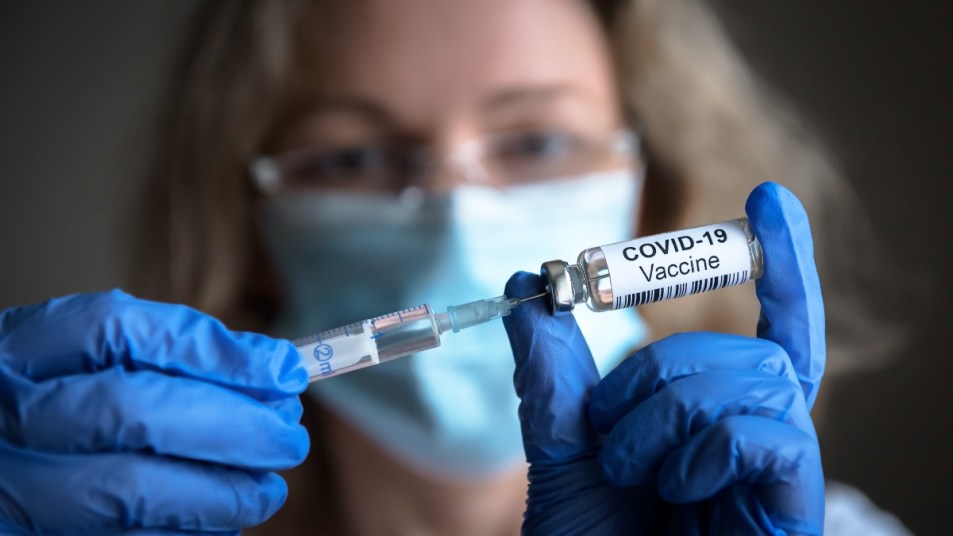Does the Latest COVID-19 Booster Cause or Prevent Heart Problems?
The short answer: Heart issues after the vaccine are rare.

It’s booster season, but let’s face it: Getting your vaccinations isn’t fun. The latest COVID-19 booster — a bivalent vaccine that provides protection against omicron and other variants — can cause symptoms ranging from a sore arm to fever and chills. Rumors that it causes myocarditis (heart inflammation) have ramped up the fear factor.
There’s good news, though: Research suggests that this fear is unfounded, and the opposite is actually true. By preventing severe COVID infection, the latest COVID booster could also prevent myocarditis and other heart issues. Here’s why.
What’s the latest research?
“A third dose of the Moderna or Pfizer COVID-19 vaccine poses no more risk of heart inflammation than a second dose,” the American Heart Association (AHA) reports. The AHA based this news on a study published October 30, 2022. In the preliminary study, researchers analyzed medical records of over 3 million Southern Californians. All participants had received at least one dose of Pfizer or Moderna between December 14, 2020 and February 18, 2022. Then, the researchers identified the participants who were hospitalized for myocarditis within 21 days of receiving a vaccine dose.
- Of the more than 3 million patients who received the first dose, six were hospitalized for myocarditis.
- Of the 2.9 million patients who received both the first and second dose, 26 were hospitalized for heart inflammation.
- Of the 1.4 million who received a third dose, nine were hospitalized.
While the incidence of myocarditis was highest after the second dose, it remained rare. For all heart inflammation cases, most patients’ symptoms resolved themselves without extensive medical care. More studies are needed to support these findings, but the research so far is promising.
To further understand the risks and benefits of the latest COVID-19 booster, we reached out to Briana Costello, MD, general and interventional cardiologist at The Texas Heart Institute, to answer some pertinent questions.
Q: What are the short and long-term effects of COVID-19 on the heart?
A: Fortunately, most patients with a COVID-19 infection do not suffer long-term damage to their heart. Moreover, most COVID patients generally do not suffer from cardiac complications. The most common cardiac issue in the office that we have seen has been heart palpitations. If patients have this, they are generally treated conservatively with low-dose heart rate medications. Most patients with palpitations after COVID seem to get better over a few months and ultimately are able to get off the medications. A few of the more serious but less common complications from a COVID infection are myocarditis and venous thromboembolism (clots) in the veins or lung arteries.
Q: Some people are concerned that the latest COVID booster will cause heart issues. Could you discuss the risks of the vaccine vs. contracting COVID?
A: Overwhelming evidence suggests that most people benefit from vaccines for COVID. There is a very small subset of patients who develop myocarditis after vaccination, but they should not inhibit people from getting vaccinated. The myocarditis is most times very well tolerated and goes away on its own.
Q: If a person does not plan to get the latest COVID-19 booster, what are the risks?
A: In general, people without any previous vaccine are at higher risk for contracting COVID and thus suffering from complications from infection. The COVID virus itself is a moving target as it continues to mutate, but evidence suggests that being vaccinated is certainly helpful.
The Bottom Line
If you are still concerned about getting the latest COVID-19 booster, talk to your doctor. Physical reactions to a vaccine can be scary, so it’s important to discuss the pros and cons with a medical professional who knows your health history. Every case is different, but your doctor will likely recommend that you get the shot, especially if you are over 50.
Another tip: Get your flu shot one week before or one week after the booster. It’s perfectly fine to get both vaccines on the same day, but spacing them out will help reduce side effects.













